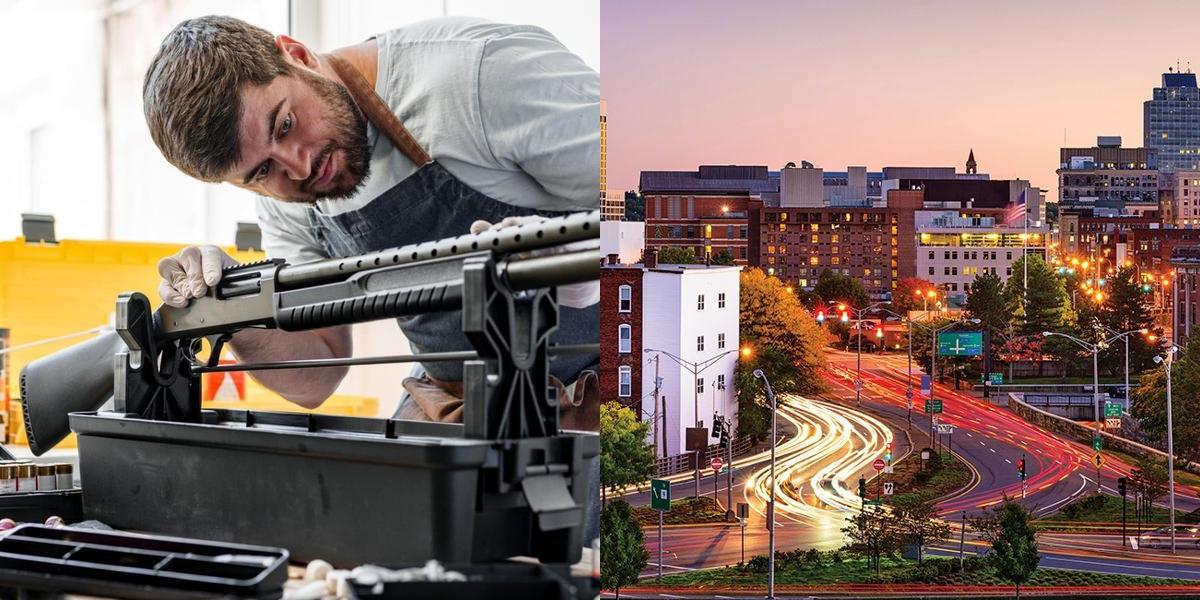How to Become a Gunsmith in Massachusetts

Gunsmithing is a specialized trade focused on the repair, maintenance, and customization of firearms. Gunsmiths combine technical expertise with craftsmanship to ensure firearms operate safely and efficiently. If you're passionate about firearms and considering a hands-on career in Massachusetts, becoming a gunsmith could be an ideal path.
Key Points
- A gunsmith is a skilled tradesperson who repairs, modifies, and maintains firearms.
- Gunsmith training in Massachusetts typically takes 6 months to 2 years.
- Training options include in-person programs, online courses, and apprenticeships.
- To work professionally, you need a Federal Firearms License (FFL) and should understand Massachusetts firearm laws.
- The average salary for a gunsmith in Massachusetts is $54,891 per year, with higher earnings possible in Boston or with specialization.
Where to Find Gunsmithing Classes in Massachusetts
Looking for local programs? Dreambound is the best place to explore vocational training options in Massachusetts. Whether you want hands-on or online training, you’ll find the right fit.
Gunsmith Salary and Job Outlook in Massachusetts
- Average salary in MA: $54,891/year
- Boston average: $56,427/year
- Top earners: $60,000–$80,000+ with experience or specialization
Job outlook remains steady, with increased demand in areas of custom firearms and historical restoration.
Career Paths and Opportunities After Becoming a Gunsmith
After certification and licensing, you can explore roles such as:
- Gun Shop Technician – Repair and service firearms for customers
- Custom Gunsmith – Create custom-built or competition-grade firearms
- Firearm Manufacturer Technician – Work in firearm production or design
- Instructor – Teach at trade schools or mentor apprentices
- Self-Employed Gunsmith – Run your own business or online service
Frequently Asked Questions
What degree do you need for gunsmithing?
You don’t need a college degree, but completing a certificate or associate degree in gunsmithing or machining from a trade school or vocational program is highly recommended.
What is the difference between a gunsmith and an armorer?
An armorer focuses on maintenance and basic repair, often for police or military agencies. A gunsmith has more advanced mechanical and machining skills for customization, restoration, and precision work.
What tools do I need for gunsmithing?
Common gunsmithing tools include:
- Gunsmith screwdriver set
- Bench vise with protective jaws
- Brass and nylon hammers
- Calipers and micrometers
- Dremel tool or rotary tool
- Firearm-specific jigs and punches
- Cleaning kits and lubricants
Final Thoughts
Becoming a gunsmith in Massachusetts is a great opportunity for those who enjoy hands-on work and have a passion for firearms. Whether you want to work in a shop, start your own business, or restore antique weapons, this career offers flexibility, independence, and niche specialization.
Ready to get started? Browse accredited gunsmithing programs in Massachusetts on Dreambound and start building your career today.
Wondering if there's more? Perhaps these other articles will be more helpful if this one isn't exactly what you're after:

Stephanie Dayak is the go-to person for everything related to automation and integrations at Dreambound. As a Certified Tax Technician turned tech whiz, her sharp eye for detail and passion for efficiency become evident in every project she undertakes. When not solving tech puzzles, she's out exploring the local food scene, cozying up with her dogs, or plugged into a thought-provoking podcast. She's an ardent believer in mixing fun with functionality!



